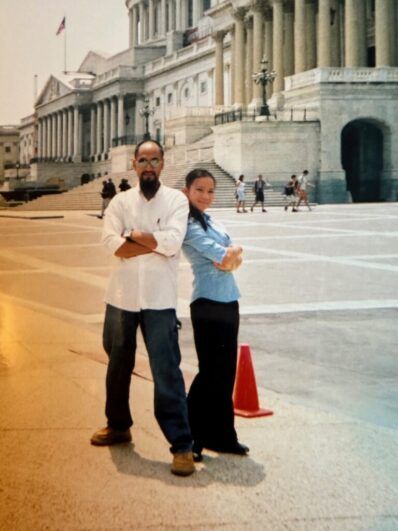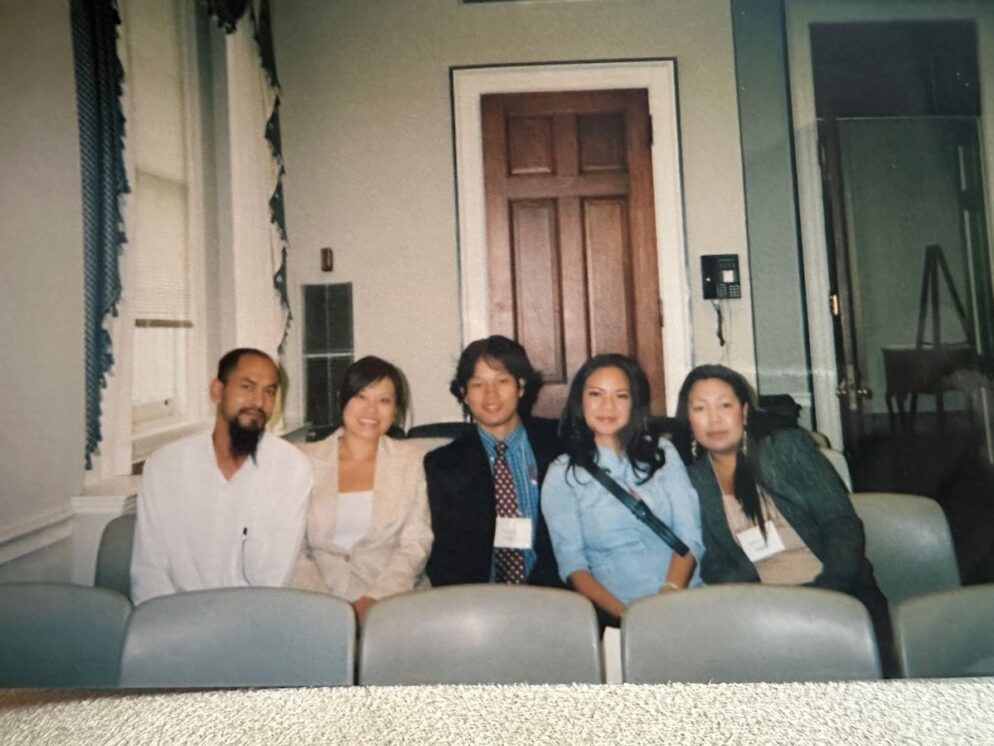By Cat Bao Le
The purity of being solely an attendee at SEARAC’s Leadership and Advocacy Training (LAT) in 2006 is something that would impact me for years to come.
Although in Sacramento I grew up with Southeast Asians, LAT introduced Southeast Asian spaces in a very different way compared to the pan-Asian spaces I had been a part of in the Bay. For me, it felt like home. For a start, there was a deeper recognition and kinship of our shared life experiences in the United States — something that at that time I felt was often buried even within Asian American organizations and even Asian American studies.
When I went to LAT I was 25, and had only gone to two states in my life. I stayed mostly in Cali and had never been to DC or the East Coast. I remember feeling that DC was so foreign, and I did not know what to expect. I didn’t even know what to wear, so I packed hand-me-downs from my sister.
However when I arrived at LAT, it did not feel foreign at all. Once we warmed up and let our guard down, LAT felt like a place where without even saying anything, we shared a very specific collective pain — a pain that then thrusted us into work we wanted to achieve for our people, all wrapped in how my community get through hard times: joy, silliness and jokes.
“It’s been important for me to pour into, but also create, spaces that allow us to build…”
I had never been in a space where we all were from refugee backgrounds due to the same historical event (wars in Southeast Asia), and where we essentially were fighting for each other, not to change past regimes abroad, but to fight for our humanity under the current regime in the United States. Something felt so relevant and invigorating to me in this.

For example, the documentary Sentenced Home, which highlighted the unjust deportations happening in the Cambodian American community, had not been released yet, but to be able to deliver the DVD to a representative with Many Uch—one of the community members featured in a film that made me feel so seen—did something so validating to me. To gather us from across the country so we could have the audacity to ask for what we need (and deserve) in the nation’s capital, where we walked the halls of Congress lined with pictures and pictures of old white people, while being unapologetic with the stories we would tell about our own lives and community, was absolutely radical for me. I felt the ancestors had to be proud of us! And to see the SEARAC staff move with all the complexities and contradictions of being in those spaces, while creating this space for us to be purely attendees, was something that made me love them even more.
Since LAT I’ve gone on to many different chapters, perhaps the biggest one has been to create or pour into movement spaces in the South. In the chapters that come and go, I always try to remind myself to honor those feelings and experiences I have felt in spaces like LAT — and to create spaces that are grounded in the same thing for attendees who may just need the space to be purely an attendee. It’s been important for me to pour into, but also create, spaces that allow us to build: by letting our guard down, loving ourselves, fighting for each other, and having a thread of genuine joy and celebration throughout.
SEARAC LAT stands out in my memory as one of those pure experiences, where it felt amazing to be with my people and have that attendee experience. No guards up. The purity of that is something that I remember when things get tricky.
Here are 3 things I would like to pass on to the next generation of LAT participants:
1. It’s ok to not mimic what you think is professionalism (which is often based in white supremacy and capitalistic forms of communication and competition anyways)– so be you!
2. There is enough space for many different formations in movement (so much has not been created)– so keep creating and doing new things even if it does not follow the current movement establishments!
3. “Move at the speed of trust”– Adrienne Marie Brown
For more blogs in our #LATSpotlight series celebrating 25 years of SEARAC’s Leadership and Advocacy Training Program, see:
From Long Beach to Cambodia: Finding my community and claiming my voice by Cheryl Yin
Applying leadership and advocacy skills — for life by Va Her
Speak your truth, even when your voice shakes by Lasamee Kettavong

